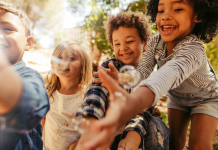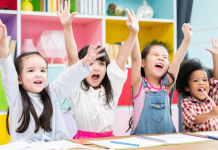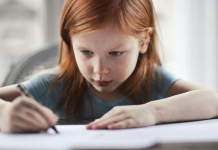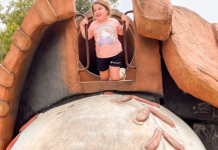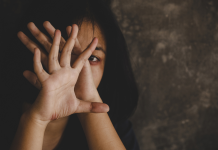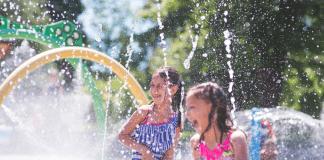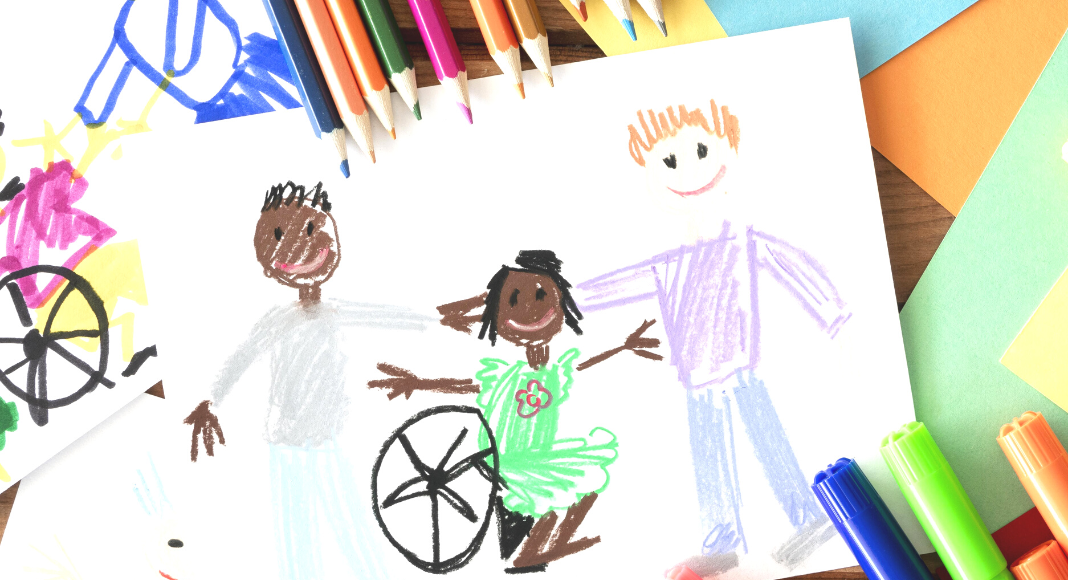 My preschooler noticed a girl his age wearing pull-ups and asked me in the car later, “Is she a baby?”
My preschooler noticed a girl his age wearing pull-ups and asked me in the car later, “Is she a baby?”
I explained, “No, she’s not a baby, she’s a big kid like you. Some people need help with the potty longer, and that’s okay!”
My son pondered a bit more, “But she makes funny sounds like a baby . . .”
“You and I make funny sounds sometimes too. What are some noises you like to make?” I asked him.
My son barked like a pup. I added, “So maybe you can pretend to be puppy dogs together sometime!”
Still questioning, my son said, “But she doesn’t talk.”
I smiled and explained, “Some kids may not talk as much as you do, and that’s okay. I was usually a quieter kid growing up too . . . Will you be a good friend to her? Will you share your toys like the nice boy I know you are?”
Kids are generally curious about the differences they see in other people. As someone who knows how it feels to be on the outskirts of social groups, it’s important to me that my kids are inclusive. I want them to grow in empathy and concern for others, especially if they notice someone being left out.
Having kids has been really great for expanding my comfort zone. But even having extroverted kids (as an introvert, myself), I’m making a point to teach them to say, “Hi. What’s your name?” The intentionality of friendliness is essential to model.
A few months after our first son came home from South Korea, we were out at a store together. His vocabulary in English was pretty limited at that point, and he saw a man in a wheelchair roaming the aisles. So my son asked me, “Hey, that guy’s in a stroller?”
I was admittedly flustered. That was the first of this type of situation that I had encountered as a parent, and I’m sad to say I wasn’t prepared to handle it yet. My gut reaction was to redirect my son and avoid the man in the wheelchair so he didn’t say it again and risk offense. Of course, mentally processing the situation later on, I realized I should have just used that moment to explain that it was a wheelchair! He wasn’t calling it a stroller to be mean; he simply didn’t have the word “wheelchair” in his vocabulary yet. I could have just explained that some people need wheelchairs to help them get around!
We made up for my failure in later situations, of course. And my son discovered while helping at a nursing home that wheelchairs are really cool and fun to help push someone in!
How do we respond as a parent to our children asking about differences they see? Do we automatically hush them? Could that teach them it’s wrong to talk about differences or that differences are bad?
The more I’ve listened to the perspectives of those with differences from me, the more I’ve learned how to appropriately address these situations and questions from my kids. I’ve learned a lot by following Special Books by Special Kids on Facebook and Youtube. There are also tons of books we can read to our kids about diversity and differences.
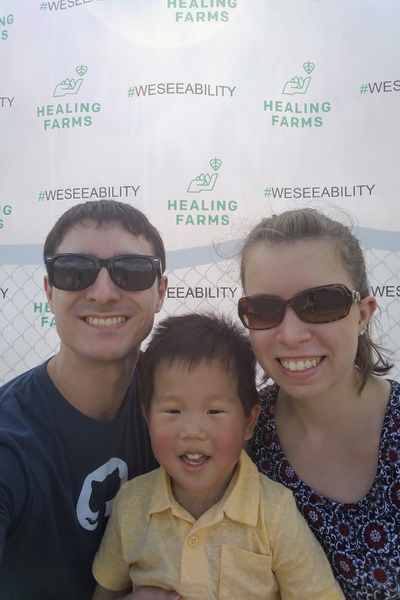 There are a few local places and events we’ve also frequented and learned about in the Charleston area that help bring more awareness to our community about disabilities. These organizations focus on seeing ABILITY, providing opportunities and advocacy, and bridging the gap in our society.
There are a few local places and events we’ve also frequented and learned about in the Charleston area that help bring more awareness to our community about disabilities. These organizations focus on seeing ABILITY, providing opportunities and advocacy, and bridging the gap in our society.
- Bitty & Beau’s Coffee Shop, located downtown, is purposefully run by adults with disabilities.
- Healing Farms holds a yearly Walk & Roll fundraiser for the community to attend and support.
- Down Syndrome Association of the Lowcountry holds an annual Lowcountry Buddy Walk fundraiser for the community to attend and support.
- Walk for Autism is an annual event for the community to attend and support.


